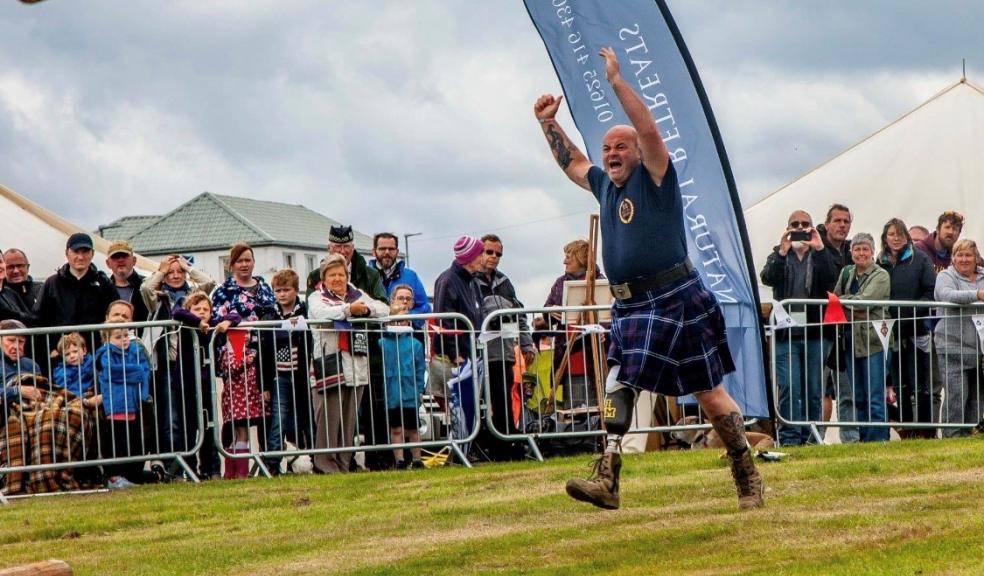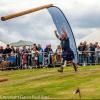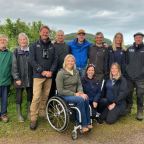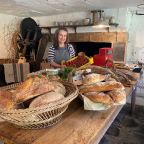
Wounded Plymouth veteran helps make history in first Para Highland Games
A wounded veteran, originally from Plympton in Plymouth, was among a team of wounded and injured veterans and serving personnel who created history at the weekend, when they took part in Scotland’s first ever Para Highland Games, in front of Prince Charles.
Steve Cokayne, who went to Ridgeway School and now lives in Hinckley, was a member of a Help for Heroes team that competed in the Mey Games at John o’ Groats on Saturday 4 August.
More than 2000 spectators watched the team compete against para athletes from America and Australia, and saw Steve become the current reigning world champion at ‘Sheaf Toss’. It’s the first time that the sport, which involves hurling a 26lb bag of rocks over a height using a pitchfork, has featured in a para games.
The 50-year old came second in no less than four events, including shotput and throwing a 32lb weight over a high bar.
Steve said they gave the competition something to think about: “I think I gave the Americans a good run for their money,” he laughed. “I had never thrown anything as heavy as the 10kg shotput so to come second in that was great too. “The whole thing was absolutely incredible. So good that we are looking to start entering Highland Games on a regular basis and, if we can get the funding, even go over to the US and compete there where they can attract crowds of up to 32,000!”
Steve served with 94 Locating Regiment Royal Artillery and was deployed all over the world, including on operations in Northern Ireland. A rock-climbing accident in 1988 led to him undergoing 30 operations on his right leg until, in 2009, the decision was taken to amputate it below the knee.
He now works as a freight train driver, and is an experienced strongman, having competed in the 100m shotput, discus and powerlifting in the 2017 Invictus Games in Toronto. He saw the Highland Games as an ideal progression. His preparation for these Games comprised of lots of upper body work – and, of course, buying a kilt!
He said taking part in sport has given him back his purpose in life: “Sport is really important to my recovery. After losing my leg, it has kept me focused. The Games gave me a chance to meet up with old friends I’ve not seen in a while, make new ones and competing in sports which I’ve never done before.”
The Mey Games is the smallest of Scotland’s Highland Games and is run by the local British Legion in aid of veterans. HRH Prince Charles is Chieftain of the Games and, like his grandmother before him, is a regular attendee. Having enjoyed the success of the Invictus Games, created by his son Prince Harry, the Duke of Rothesay (as he is also known), invited Help for Heroes to enter a team into specially adapted classes of the traditional sports such as tossing the caber, hammer throwing and shotput.
Mark Airey, Physical Development Coach with Help for Heroes, said being asked to participate in the Mey Games, alongside teams from all over the world, had been a real honour: “Help for Heroes is the leader in para sport for wounded veterans, so we were delighted to support Scotland’s first adaptive Highland Games. We hope the success of this milestone event will encourage other Games organisers to follow suit in the future as we know how integral sport is to the recovery of so many of those we support. Not all are aspiring Paralympians but they just enjoy physical exercise and friendly competition and the Highland Games is perfect for them.”













